Trump declares 'patience is over' with DPRK
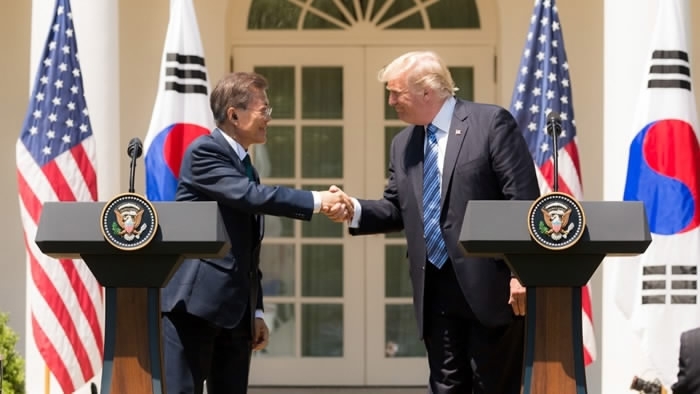
US President Donald Trump declared on Friday that the US had run out of patience with the Democratic People's Republic of Korea (DPRK) over its nuclear drive, as he welcomed South Korea's new leader Moon Jae-in to talks at the White House.
While Moon has been arguing for greater engagement with Pyongyang as the best way to put the brakes on its nuclear and ballistic missile programs, Trump made clear that he was in no mood to pursue diplomacy with the DPRK.
"The era of strategic patience" with Pyongyang has failed, Trump said at a joint press briefing with Moon in the Rose Garden. "Frankly, that patience is over."
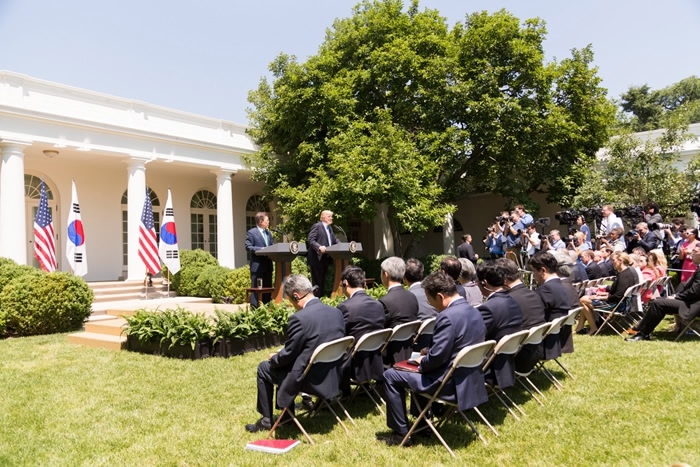
US President Donald Trump and South Korean President Moon Jae-in hold a joint press briefing after talks in the White House in Washington, US, June 30, 2017. /White House Photo
US president reaffirms commitment to defending South Korea
The Trump administration has been growing increasingly exasperated with the DPRK which has staged a barrage of missile tests in recent months.
There was also deep anger in the United States after Otto Warmbier, an American student who was detained in the DPRK on a tourist trip around 18 months ago, was returned home in a coma earlier this month. He died several days later.
Trump said Washington and Seoul "are facing the threat of the reckless and brutal" government in the DPRK, stressing that the nuclear and ballistic missile programs of Pyongyang "require a determined response."
The DPRK "has no respect for human life," the US president added.
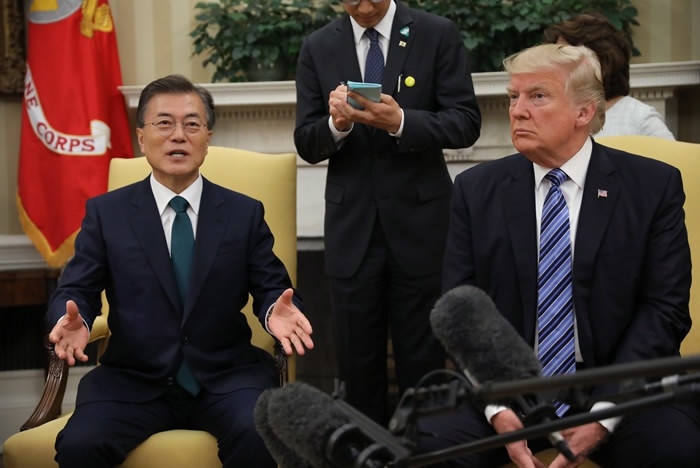
US President Donald Trump (R) meets with South Korean President Moon Jae-in in the White House Oval Office in Washington, US, June 30, 2017. /VCG Photo
"Our goal is peace, stability and prosperity for the region," he said. "But the United States will defend itself, always will defend itself, always. And we will always defend our allies."
Trump described the alliance between the US and South Korea as a "cornerstone of peace and security in a very very dangerous part of the world."
Meanwhile, he called on "other regional powers and all responsible nations" to bring pressure to bear on Pyongyang by implementing sanctions.
Trump to visit Seoul later this year
Moon announce that Trump had accepted an offer to visit Seoul later this year, but the leaders failed to map out any kind of joint strategy on how best to deal with the threat posed by the DPRK.
While they agreed to meet the DPRK with a "stern response," the South Korean president said engaging in dialogue with DPRK leader Kim Jong Un was necessary to resolve the issue.
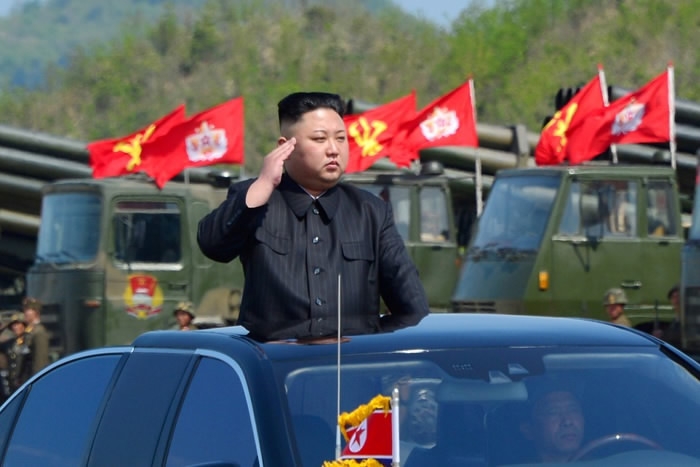
DPRK leader Kim Jong Un watches a military drill marking the 85th anniversary of the establishment of the Korean People's Army in Pyongyang, DPRK, April 25, 2017. /VCG Photo
"President Trump and I agreed that only strong security can bring about genuine peace," Moon said. "The threat and provocation of the DPRK will be met with a stern response."
"Our two leaders will employ both sanctions and dialogue in a phased and comprehensive approach" in an effort to resolve the DPRK nuclear issue, he added.
Renegotiating 'rough' trade deal
Trump has spoken harshly about US trade imbalances and threatened to tear up a five-year-old trade agreement reached with South Korea by his predecessor, Barack Obama.
He said on Friday that the US was renegotiating what he characterized as a "rough" trade deal with South Korea.
"We will do more to remove barriers to reciprocal trade and market access," Trump said, adding that the two leaders had talked about the thorny trade areas of steel and autos.
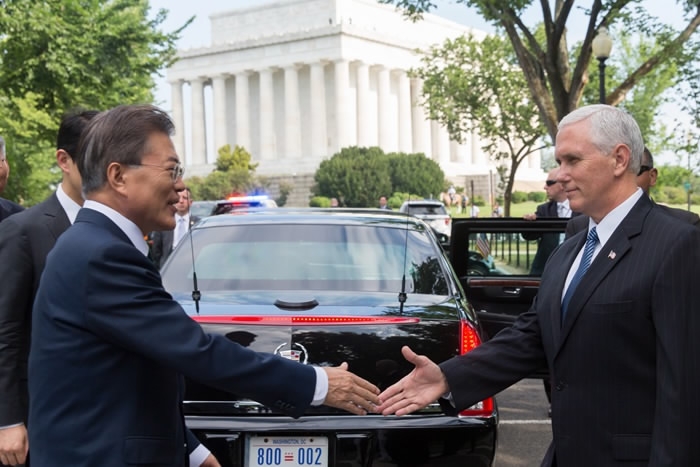
South Korean President Moon Jae-in (L) shakes hands with US Vice President Mike Pence outside the White House Oval Office in Washington, US, June 30, 2017. /White House Photo
"I am encouraged by President Moon's assurances that he will work to create a level playing field so that American workers and businesses, and especially automakers, can have a fair shake at dealing with South Korea," he said.
On Wednesday, Moon said that unfair trade practices would be eradicated and factors that limited competition, such as barriers to market entry and price regulations, would be re-evaluated under his administration.
The US goods trade deficit with South Korea has more than doubled since the KORUS pact took effect in 2012, from 13.2 billion US dollars in 2011 to 27.7 billion US dollars in 2016. It was forecast to boost US exports by 10 billion US dollars a year, but they were 3 billion US dollars lower in 2016 than in 2011.
(Source: AFP, Reuters)
Related stories:
Trump and Moon on DPRK: Common goal, different approaches
